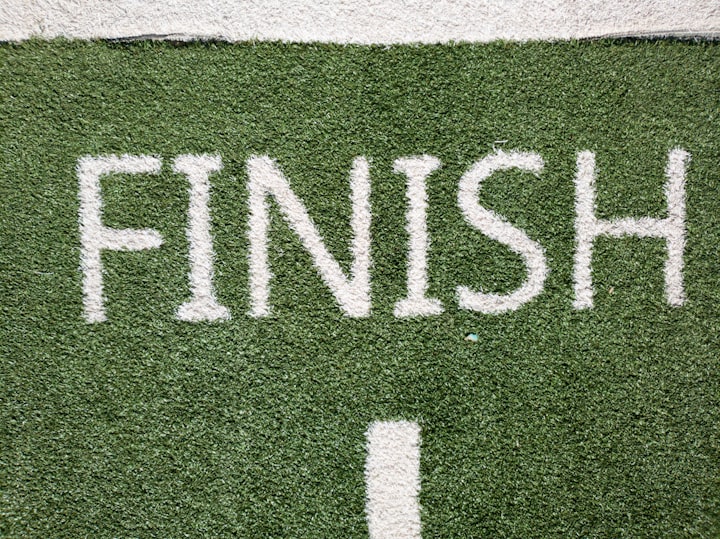Writing a Book in 30 Days
Is It Possible to Finish a Novel in a Month?

There is a plethora of resources that support the idea of writing a book in a month. If you search for “Write a book in 30 days” on Amazon, you get dozens of results. The National Novel Writing Month is based on the idea of writing a book in a month.
But how possible is it to finish a book in 30 days? And is a book written in such a short time any good?
I wrote my first book following the guidance of one of those aforementioned books from Amazon. With another National Novel Writing Month approaching, I revisit my first-ever novel writing challenge, its pros and cons, and where that book is now.
Unless you count the book my friend and I tried to write in collaboration when we were nine years old, I had not dabbled in book writing until I was in my late twenties. In fact, I had written no fiction, short or long, since I left high school, despite always wanting to become a writer.
When that desire was re-ignited, I did not know how to start. How do you write a whole book? How do you develop the plot and characters so you sustain your readers’ interest from beginning to end?
I needed some help to get started and my friend recommended a book about writing a book in thirty days. Unfortunately, I cannot tell you what the book was called or who it was written by because it was so long ago.
However, the aim was to finish a 50,000-word first draft in a month. I remember it included a prep section before you launched into the 30-day writing challenge. It guided you through character development, plot, dialogue, and the dos and don’ts of novel writing. The idea was to have an established idea before the writing process began.
I struggled with the prep part of the book because I am not a planner. I am 100% pantser. Planning my writing (or life) has never been my forte. But for the sake of doing it properly, I followed the instructions, developed my characters and their backstories, planned out the key events of the book, and got ready to write.
Did I follow the plan I created? No, the book took on a life of its own when I began writing, so the planning stage had been a waste of time for me. However, having thought about my characters in detail before writing was useful. I had a much better idea of how they would behave, what they would say, and what motivated them.
50,000 words divided over 30 days is 1666.66 (recurring) words per day. This is not a lot. Most people can write that amount of words in under an hour. You can easily fit it into your day, even if you are working full-time.
It didn’t work out as 1,666 words per day in practice. Some days I got into the flow and wrote much more. Other days were more of a struggle and I wrote less. But I wrote every day and by the end of the month, I had finished my first-ever book. A story of murder and revenge.
Was that book any good? Frankly, no. It was full of cliches and the plot twist was predictable. What happened to it? Discarded. There was no salvaging that one.
But for me, the quality was not important. What mattered the most was that I had finished a book. Shite as it might have been, I had written a book. For me, the exercise hadn’t been about ending up with a book I’d like to send to literary agents. It was about seeing if I could write one.
The Pros of Writing a Book in a Month
Challenging yourself to write a book in a month has many advantages. It gets you into the habit of writing every day. If you have never written a book before, it gives a starting point and some structure and helps you focus on your writing. By the time I finished the 30-day book writing challenge, writing had become a natural part of my day.
Focusing on getting 50,000 words written by the end of the month can stop you from getting stuck with a section and editing your work as you go. Because you are on a tight timeframe, you cannot rethink a section endlessly but have to move on. Those sticky sections can be dealt with when you are ready to edit your finished book.
Working on your story every day can help you maintain a consistent voice and style because what you wrote the day before is fresh in your mind. You won’t have to spend valuable writing time revisiting what you wrote last time every time you sit down to write.
It gives you a sense of accomplishment, even if the book you produce is not so great. But you did it. You proved to yourself that you can write a complete novel and unlike my first book-in-a-month experiment, you might have produced something that can be refined to make it worthy of publishing.
And the Cons
I really cannot think of any real cons to writing a book in 30 days unless you count the rough quality of the finished product as a con. If you intend to publish your book, you will likely need more editing than you would if you took longer to write the first draft. But editing will always be a bitch regardless of how much editing the work needs.
Who Can Take on a 30-Day Book Writing Challenge?
Absolutely anyone. If you have always had a book bubbling inside you but never got the words on paper, taking a rapid writing challenge can help you get the words out.
Writing challenges are great for new writers because they help you to develop a writing routine and stop you from overthinking each paragraph. But they are equally good for more established writers, helping you to get that first draft out faster.
They can even help with writer's block as you don't have the time to stare at the blank page if you are going to finish the task in time. A 30-day writing challenge can be the prompt you need to get your thoughts out however rough and orginised they may be.
However, a 30-day deadline may not suit all genres equally well. If you are writing, say historical fiction that requires accurate historical facts, your writing process may be slower. But there are ways around that.
A later book I wrote during NaNoWriMo was a dual timeline book that required historical details. During writing, I simply made a note of the historical facts I needed to check and addressed them during the first round of edits. That way, I didn’t interrupt the flow of writing.
A planner might take a different approach and find out all the historical details in advance. Whatever works for you is fine as long as you keep your writing flowing.
Tips for 30-Day Writing Challenges
Since my first 30-day writing challenge, I have done NaNoWriMo several times. Here are my top tips for making it to the end.
- Set aside a regular slot each day for your writing. Stick to it, whether it is a weekday or the weekend. This will help you develop your writing routine.
- Choose a time that works best for you. A morning person might like to get up earlier and write before heading to work or starting other chores. A night owl might prefer a pre-bed writing session. If you have a long commute to work on public transport, write while you travel. Finding the right time is more likely to lead to success.
- Avoid distractions. This means your phone, your emails, your friends, your family. If you live with people, let them know you are writing for the next hour or so and you don’t want to be disturbed. Put your phone into another room or at least on silent and close any distracting tabs, like your email, on your computer.
- If possible, start it when you have some time off work. This can help you focus on your writing when you don’t have to think about your work.
- Have realistic expectations for the result. It is likely to be very rough, but that is fine. The point is, you wrote a book. Do not expect it to be an instant masterpiece and be prepared to edit it if you are writing it with publication in mind.
- Resist the temptation to edit as you go. Stopping to rewrite sections can really disrupt your flow. I often even turn off spell check while I write so I don’t get distracted by typos.
- Have fun. The process should be fun. If you feel it is another chore, maybe the process is not for you.
- Do what works for you. If you are a planner, get your ideas ready before you start. If you are a pantser like me, skip the planning and go with the flow. Or find something in between. Whatever gets you over the finish line.
- Don’t give up if you don’t meet the word count on some days. There will be days when the writing won’t flow as easily. That’s fine. The key is you sat down and wrote as much as you could get out of yourself. You are likely to make up for it on another day when the writing is flowing.
So is it possible to write a book in 30 days?
Absolutely, just don’t expect it to be polished. Don't focus on the quality but on getting the words down. Focus on becoming a finisher.
If you have an idea for a book but have never tried book writing or have tried but failed, a 30-day challenge can work wonders. You can follow a book like I did the first time or with the next NaNoWriMo just around the corner in November, join a community of others embarking on the same journey.
About the Creator
Reija Sillanpaa
A wise person said, "Be your own audience". Therefore, I write fiction, poetry and about matters important and interesting to me. That said, I warmly welcome you into my audience.






Comments
There are no comments for this story
Be the first to respond and start the conversation.